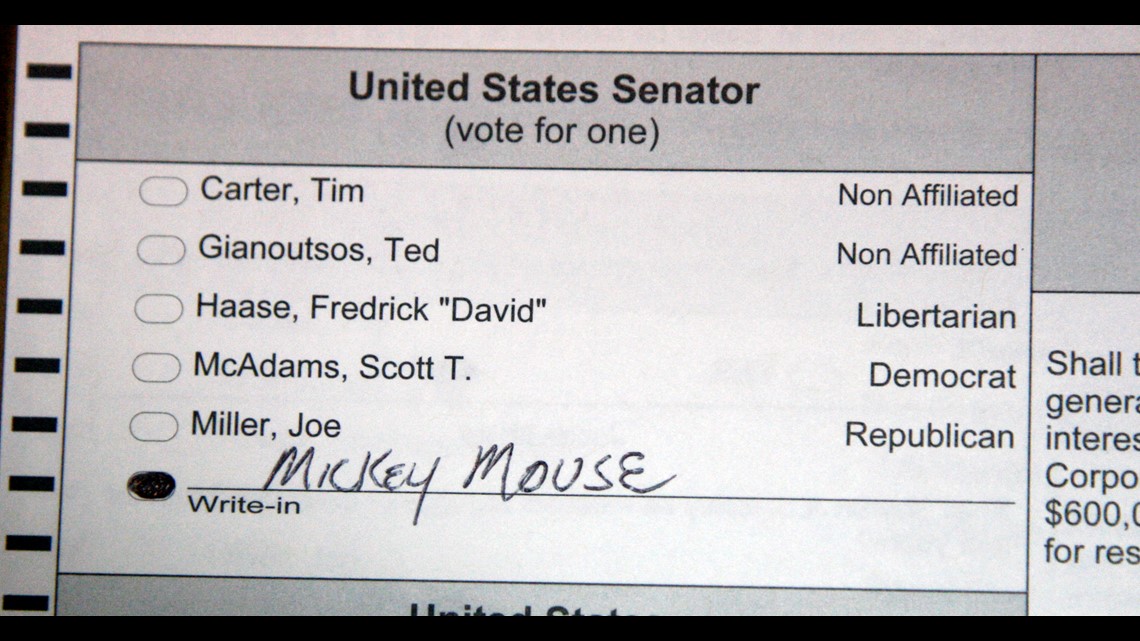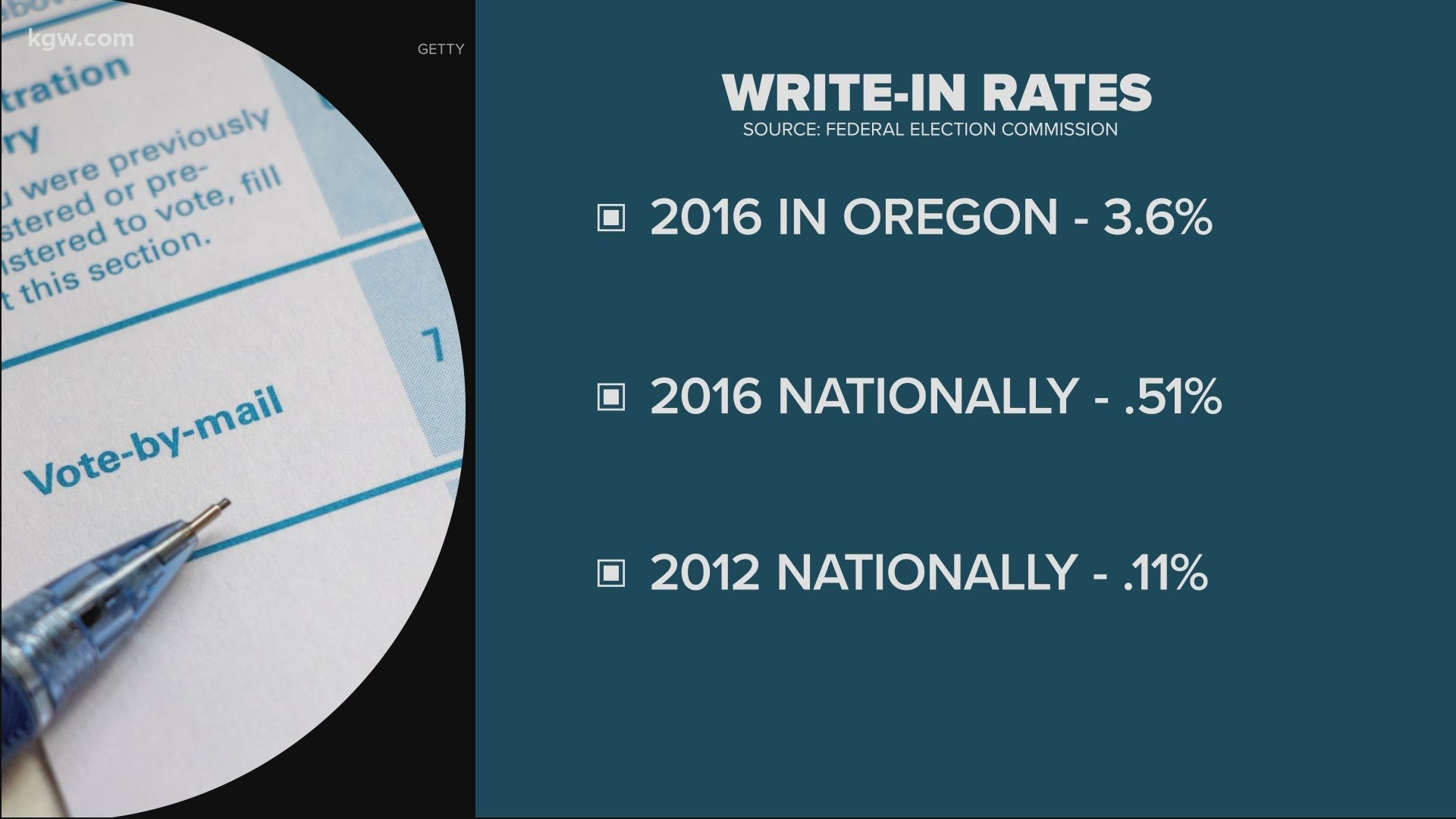Oregon and Washington voters disillusioned with candidates on this year’s ballot may turn to write-in candidates, voting for Sen. Bernie Sanders for president or Teressa Raiford for Portland mayor. But what are the chances of write-in candidates actually winning?
History has shown that write-in candidates are more successful on the local and state level than during presidential elections. On the national level, write-in candidates typically garner less than a percent of the popular vote and have never won a U.S. presidential election, though they are on the rise.
Since 1984, write-in votes have increased by more than fivefold, according to The Washington Post. Political experts say this may be a symptom of declining trust in political institutions.
In 2012, write-ins made up 0.11% of the popular vote nationwide. But, in 2016, with widespread discontent with the two major party candidates on the presidential ticket, write-in votes rose to 0.51% of the total popular vote.
Oregonians, in particular, have historically prided themselves on independent political thought. Between 1992 and 2012, Oregonians cast more write-in votes for president than any other state (0.51% of all votes), according to Federal Election Commission (FEC) records.
In 2016, 3.63% of Oregon’s popular vote went to write-in candidates like Sanders, but also to ones like Mickey Mouse (a historically popular candidate).


Oregon’s high write-in rates are partially due to its laws: the state is one of 10 states (plus the District of Columbia) that have zero restrictions on write-in voting. Most states, like Washington, require write-in candidates to submit a letter of intent before the election in order for their votes to be tallied. Other states do not allow write-in votes at all.
Tim Scott, the Multnomah County Director of Elections, said that, even in Oregon, write-in votes for specific candidates are only tallied if there are no candidates on file, or if they outnumber the numbers of votes for candidates on the ballot.
“It's a very labor-intensive process to count write-in votes because we don't have a system that employs optical character recognition,” Scott said. “So, we can tell where there's an overflow, but we can't automatically tally the results of write-in votes for individual write-ins. So that has to be done manually.”
So, for instance, Oregon did not count the number of votes Sanders got in 2016, because he did not get more than the Democratic nominee, Hillary Clinton. The same goes for Washington, where Sanders would have had to file as a write-in candidate for his votes to be tallied.
While write-in candidates are generally not successful on the national level, these candidates have gained far more victories on the state and local level. For example, Alaska Sen. Lisa Murkowski won her Senate seat in 2010 through a write-in campaign, becoming the first senator in more than 50 years to win through write-in votes.
In 2002, incumbent-D.C. Mayor Anthony Williams was forced to run as a write-in candidate in the primaries after petition problems, and he later went on to win the election. And in Camas, Wash., Barry Mcdonald won the mayoral race as a write-in in 2019.
This year, in Portland, activists are calling to write in Teressa Raiford for mayor. In the May primary, Raiford got 8.5% of the vote, falling far behind Mayor Ted Wheeler and challenger Sarah Iannarone. Though with the protests against systemic racism and police brutality, Raiford has stayed relevant in the eyes of some voters, as the leader of Don’t Shoot Portland.
According to a recent poll of likely voters conducted by DHM Research for the Portland Business Alliance, Iannarone is leading Wheeler by 11 points. 13% of voters are still undecided and 16% plan to write in a candidate — whether or not these voters plan to write in Raiford is still unknown.

